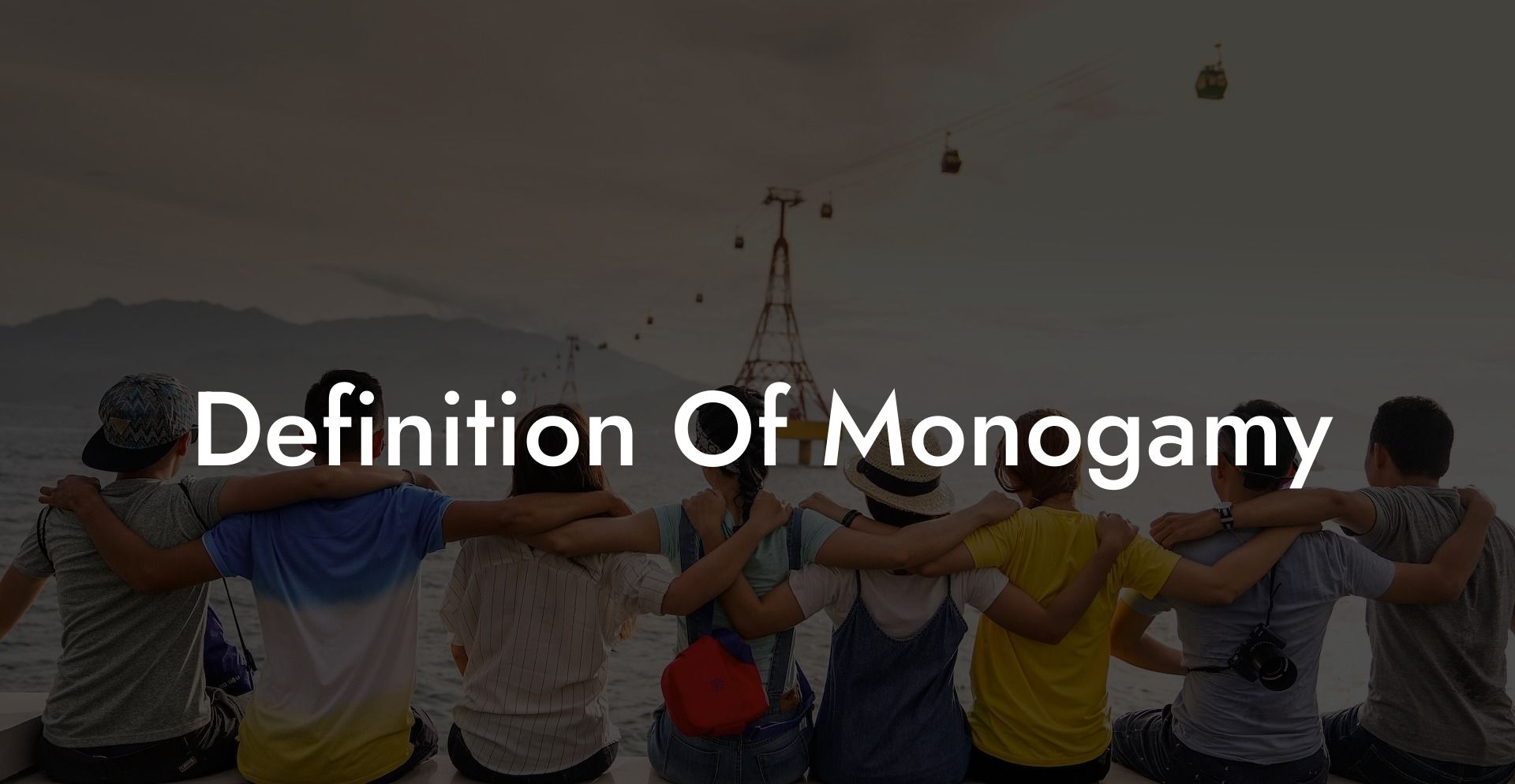Monogamy, a word often synonymous with commitment, trust, and love, is a concept deeply rooted in the minds of people across cultures. It is a vital aspect of many relationships and marriages around the world, holding the foundation for how many individuals choose to love and bond romantically. Simply put, monogamy is the practice of having only one sexual and/or emotional partner at a time. This arrangement may seem straightforward, but the world of monogamy can be just as complex and diverse as other relationship structures. Read on as we unpack the intricacies of monogamy and its role in today's society. And remember, if you find this guide helpful, be sure to explore more topics on The Monogamy Experiment!
Definition Of Monogamy Table of Contents
Types of Monogamy
Serial Monogamy
This form of monogamy refers to a person who has a sequence of monogamous relationships one after another. Although involved with only one partner at a time, these individuals may have several committed relationships throughout their lives. Serial monogamy can provide the opportunity to experience love with various partners, while still adhering to the basic principles of monogamy.
Lifetime Monogamy
Lifetime monogamy, as the name suggests, is the commitment to one partner for the entire life of an individual. This long-lasting bond is considered the gold standard of monogamous relationships, and many people aspire to attain this level of commitment with their chosen partner. In lifetime monogamy, couples devote themselves to one another through emotional and physical intimacy, creating a strong foundation of loyalty, trust, and love.
The Evolution of Monogamy
Monogamy has evolved through centuries and has its roots in multiple aspects, such as biology, culture, and even economics. Some researchers believe that monogamy emerged as a means to protect offspring, with males remaining committed to one female to help provide care and protection for the young. Others theorize that monogamy developed as a measure to control the spread of sexually transmitted diseases, as these were less likely to spread in a monogamous society.
In a broader sense, monogamy has been culturally and sometimes religiously prescribed. In many parts of the world, monogamous relationships are considered the norm and are often reinforced through social customs, traditions, and legal institutions. This has cemented the belief in monogamy as a fundamental aspect of human relationships and an important factor in establishing stable families and communities.
Monogamy and Modern Society
Today, monogamy still stands as the predominant relationship model in many societies. However, with the rise of globalization, intercultural exchanges, and increasing access to information, the concept of monogamy is continually being questioned and redefined. Some individuals choose to explore alternative relational arrangements such as polyamory, open relationships, and ethical non-monogamy, which offer different lenses to view love and commitment.
Despite this shift, monogamy remains a significant and meaningful practice for many people. For some, the dedicated focus on a single partner fosters personal growth, allowing for a deeper understanding of trust, loyalty, and loving one person wholly. Monogamous relationships can provide a sense of security, stability, and support, allowing both individuals to mature and develop together.
In conclusion, monogamy is not just a simple, one-size-fits-all concept. It is a spectrum that encompasses various types and levels of emotional and physical commitment. As societies evolve and our understanding of love and relationships grows, it is essential to keep an open mind and educate ourselves on the diverse ways people choose to form connections. We hope this guide has provided valuable insights into the dynamic nature of monogamy. Share this post with friends to spread the word and enrich the conversation on love and relationships, and don't forget to check out more informative articles on The Monogamy Experiment!













